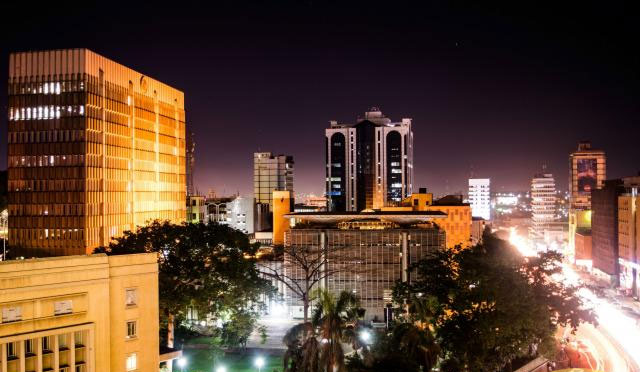
Kampala, Uganda | THE INDEPENDENT | Uganda’s newly established cities need to plan and manage settlements to avoid the same pitfalls that befell Kampala, the Capital City.
Government in July inaugurated seven new ‘cities’ by elevating former municipalities of Arua, Gulu, Mbale, Jinja, Masaka, Mbarara, and Fort Portal to city status partly to decongest Kampala.
However, the elevation of those municipalities and others in offing into cities continues to generate debate. Some critics say elevation of several municipalities as Uganda heads to the elections could be part of political gerrymandering for the benefit of the ruling National Resistance Movement-NRM party.
Seasoned urban planner and surveyor, Livingstone Okello Okello acknowledges that Gulu, Masaka and Mbale which had been municipalities for many decades probably deserved the elevation to city status. He is of the view that elevating many municipalities to city status was probably rushed.
“What happened in this county, giving so many cities at ago gives a wrong impression that these are political cities. Kenya has got three cities. And Kenya is much bigger than Uganda. But be that as it may, I think people would like to have cities. How they come it doesn’t matter. I think that aspect painted a wrong picture that we are doing politics with cities” said Okello Okello.
But he hastens to add; spaces for wider roads and management of garbage and sewerage waste will be key as the cities are rebuilt. According to Okello Okello, the seven Ugandan cities incorporated at the beginning of July have to embark on planning as an immediate challenge.
His challenge comes at the celebration of World Cities Day, marked annually on October 31 to recognize the significance of urban basic services as a foundation for the overall social and economic development. The Day also ties into the Sustainable Development Goals (SDGs), with Goal 11 aiming to make cities and human settlements inclusive, safe, resilient and sustainable.
Kenya has three cities including the capital and the largest city, Nairobi, the second largest and the coastal city of Mombasa, and the third-largest and inland port city of Kisumu. Nakuru, Kenya’s third-largest urban authority where global World Cities day 2020 is being commemorated is yet to attain the city Status. Tanzania on the other hand, has six cities including Dodoma which was incorporated by President John Magufuli in 2018.
He says the new cities need to develop what he called structural and detailed plans. He says plans should detail the land use aspects. Okello Okello says most of the social and environmental problems that Kampala faces today are because most it is not planned.
According to a 2015 World Bank Report on Kampala, the capital city continues to experience significant urban and economic growth, informal development in unplanned areas has put a strain on its natural environment and is eroding the vital ecosystem services it provides.
It is estimated that 40 per cent of Kampala’s population lives in informal settlements predominately developed near wetlands throughout the city, without basic infrastructure such as water services, storm drainage, sewage treatment and solid waste collection.
Okello-Okello’s concern comes at the time when Twaweza’s Sauti Zawanainchi survey report indicating that pit latrines continue to be widely used in Uganda. The survey conducted between July and August 2020 found that flush toilets are used by just 1 per cent of the country’s population. It showed that even in urban areas, only 3 per cent of the population had access to flush toilets.
According to the Sauti ZaWanainchi study, citizens report that the most widely used form of toilet in Uganda is the pit latrine with a slab (66 per cent), followed by ventilated pit latrines (15 per cent) and pit latrines without a slab (15 per cent).
A 2018 Urban Informality and Vulnerability: “A Case Study in Kampala” found that only 7 per cent of the population in Kampala is served by a sewer system. It said low sewer coverage is predicted to continue for decades as a citywide sewer system is neither affordable nor feasible. Majority of planned sanitation in Kampala takes the form of poor quality septic tanks that frequently leak into groundwater.
Okello-Okello, the former Chua county MP says little may have changed in terms of sewerage, garbage and generally human waste management. He urges the new cities to learn from the emerging global best practices in terms of sewerage waste.
This years’ World Cities Day is the seventh global celebration since it was launched in 2014 in Shanghai, China. The 2020 World Cities Day themed ‘Valuing our communities and cities’ underlines the importance of the local communities who are at the heart of building sustainable cities.
********
URN
 The Independent Uganda: You get the Truth we Pay the Price
The Independent Uganda: You get the Truth we Pay the Price



